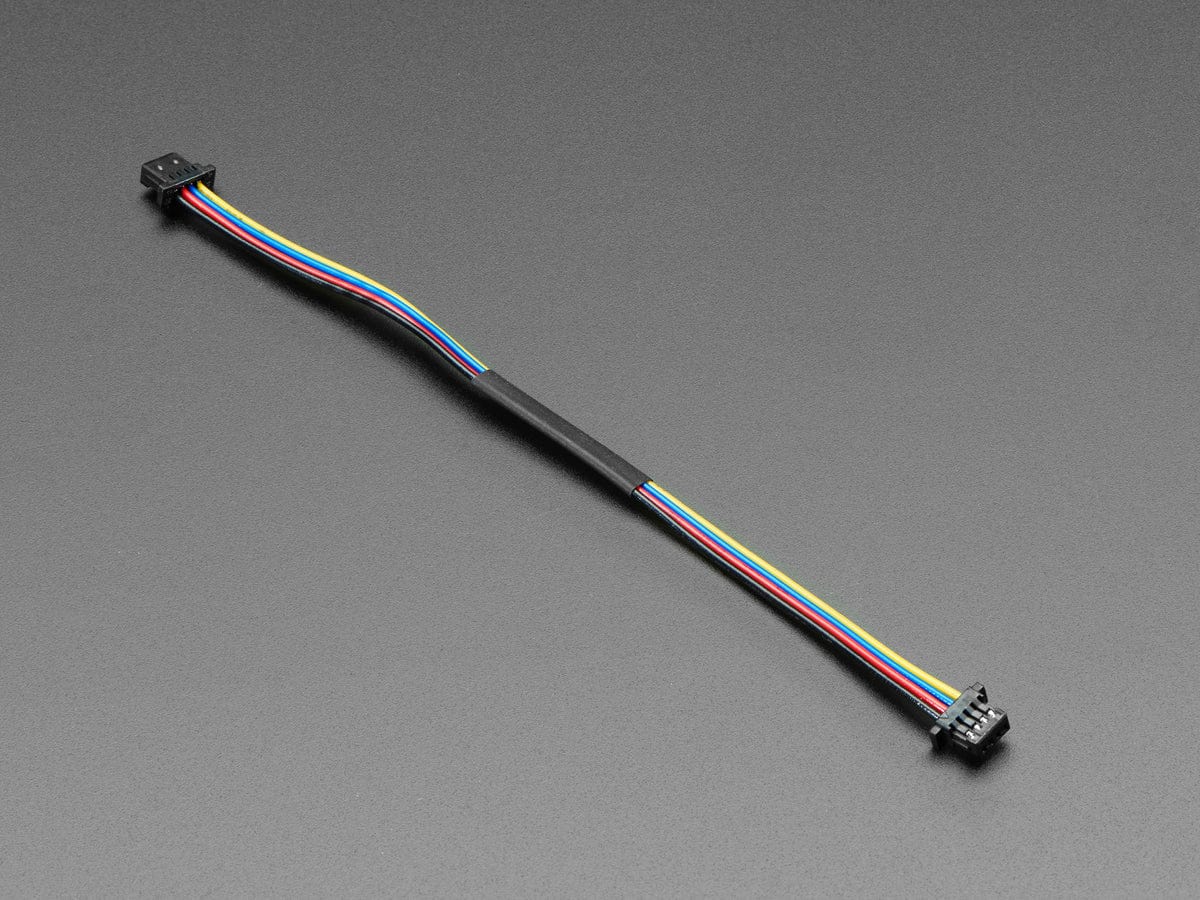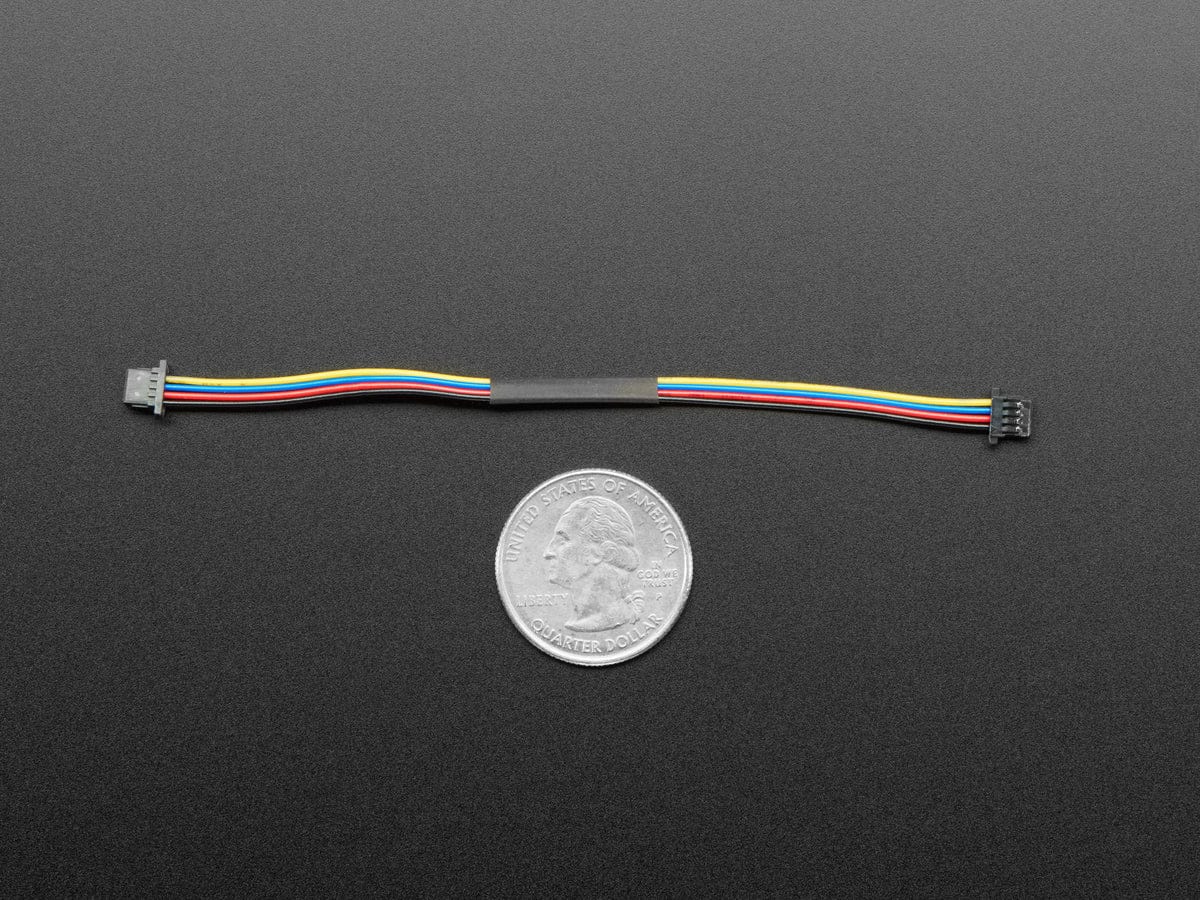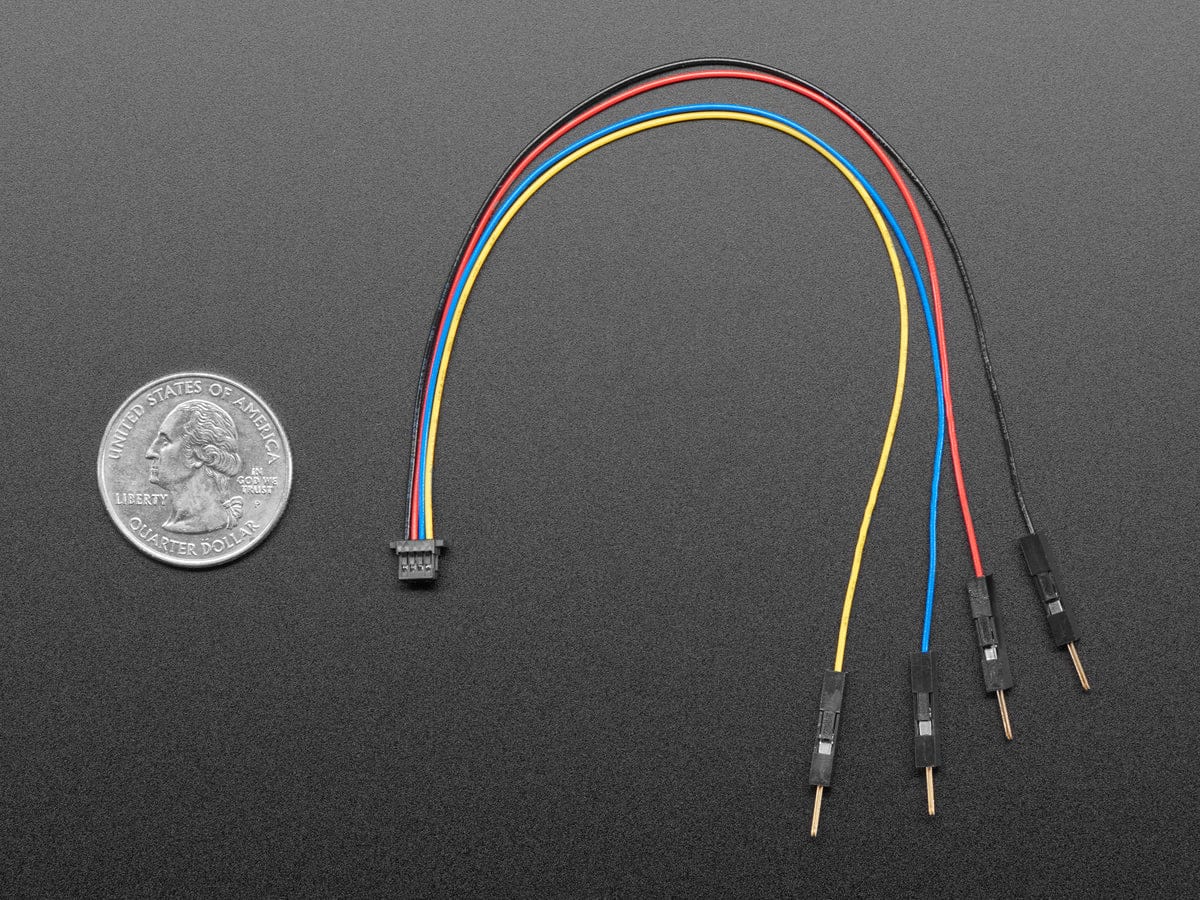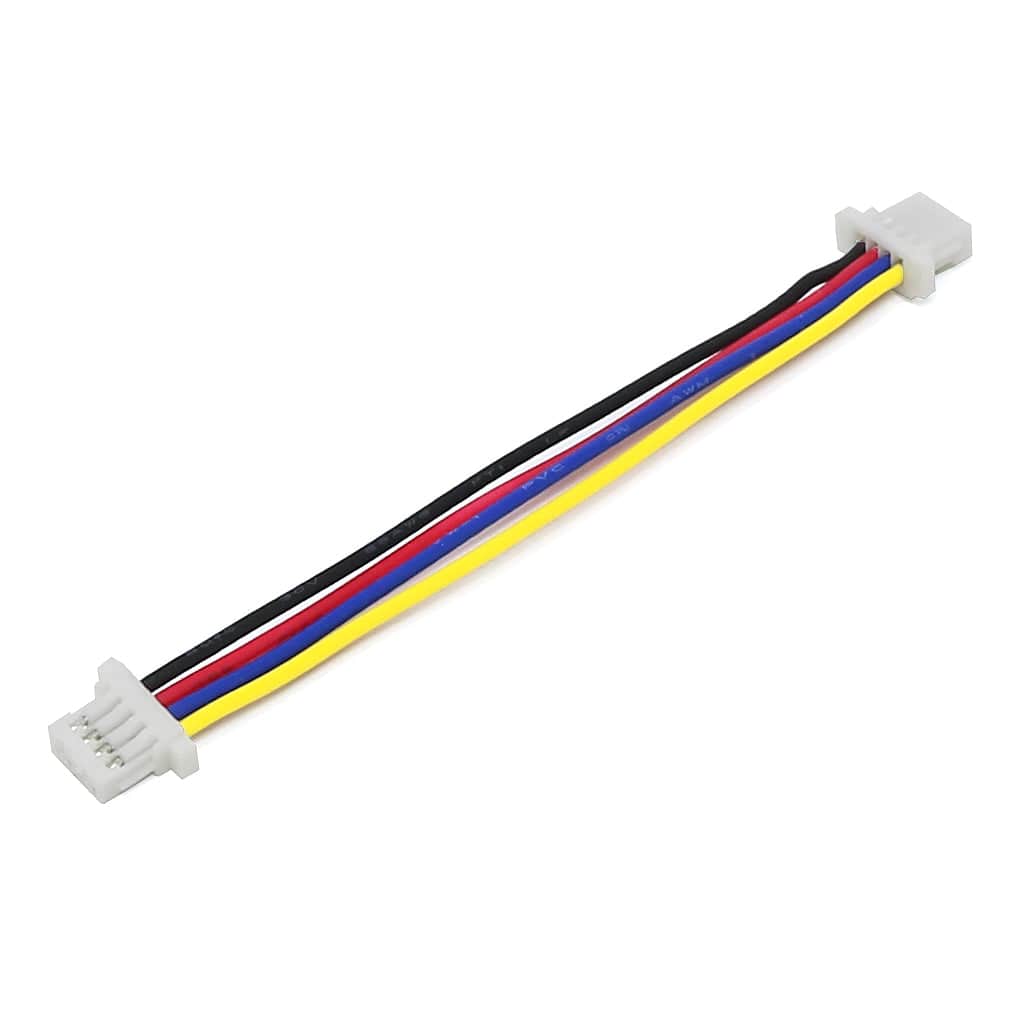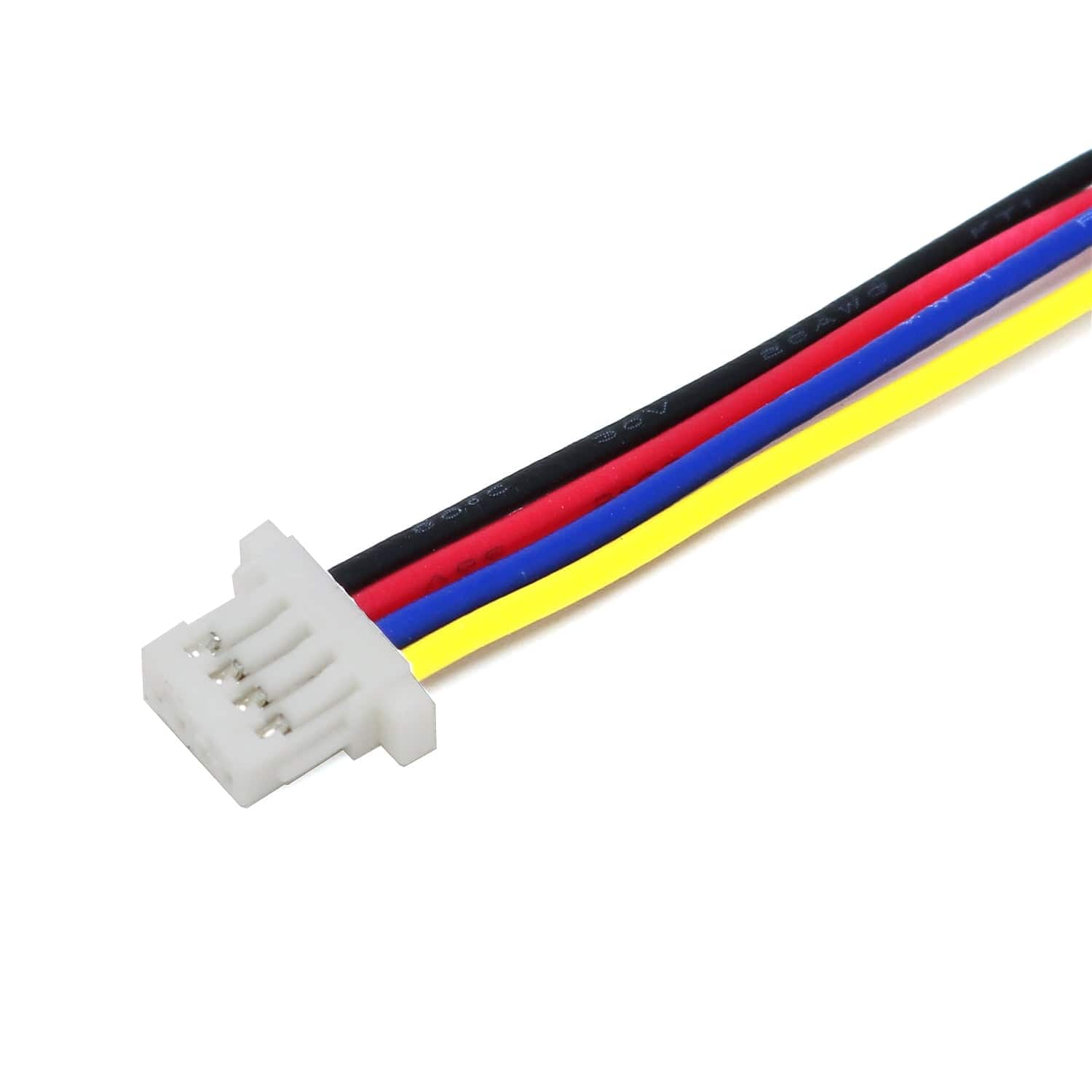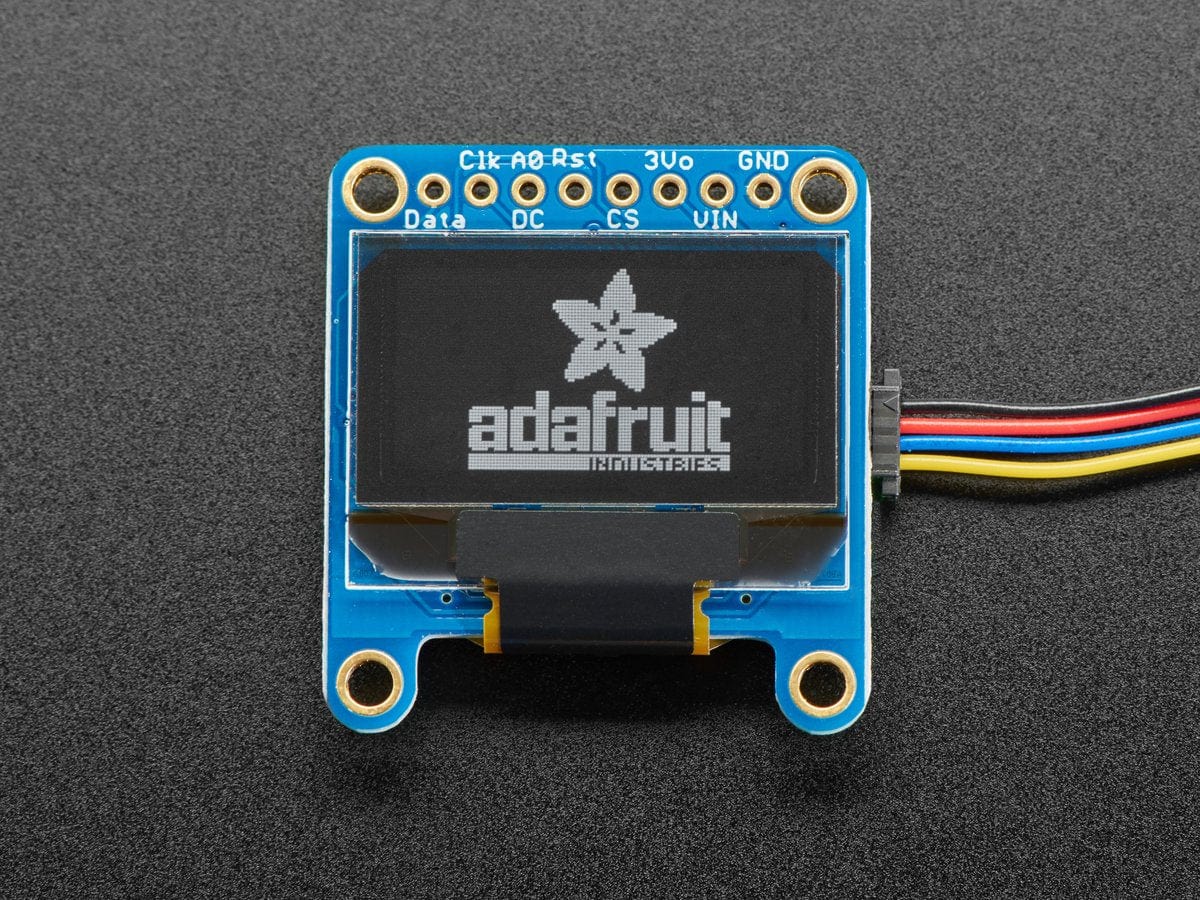
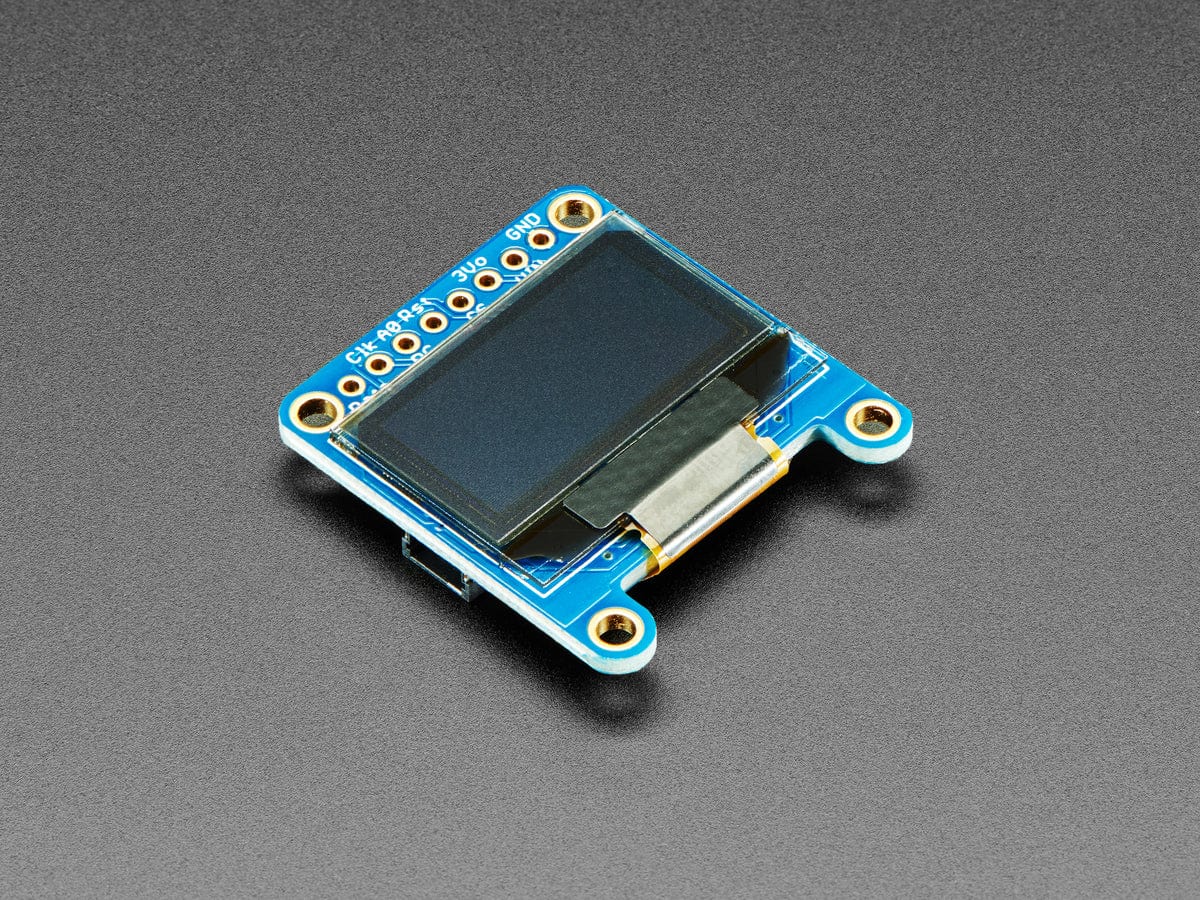
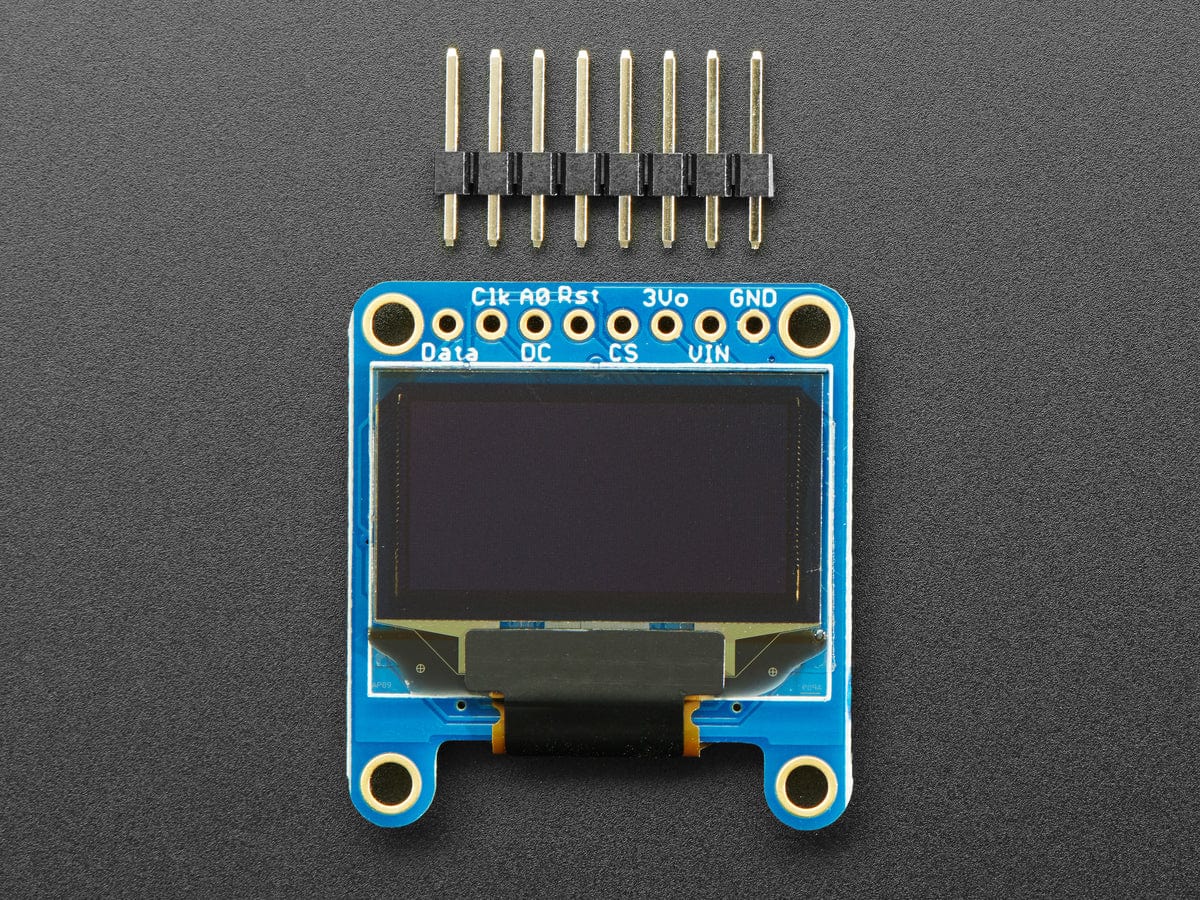
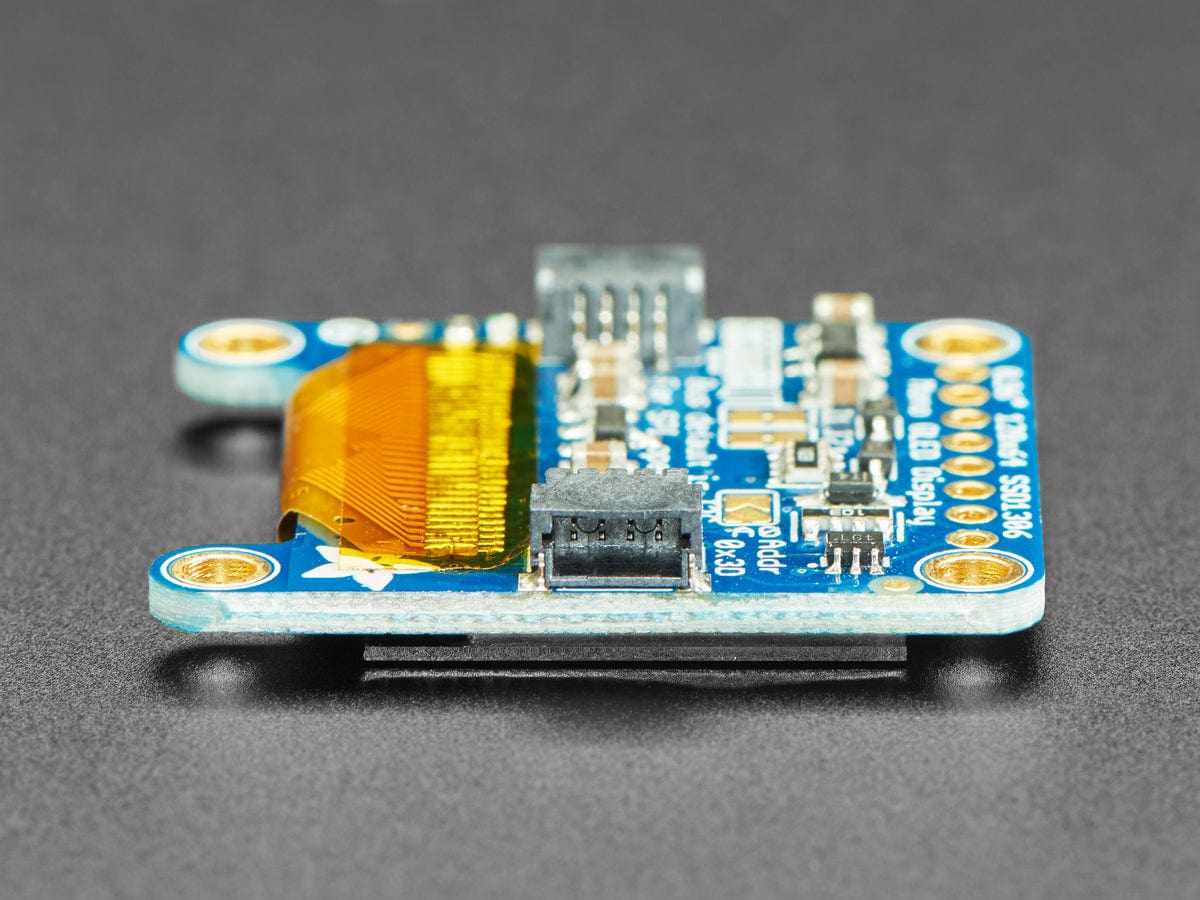
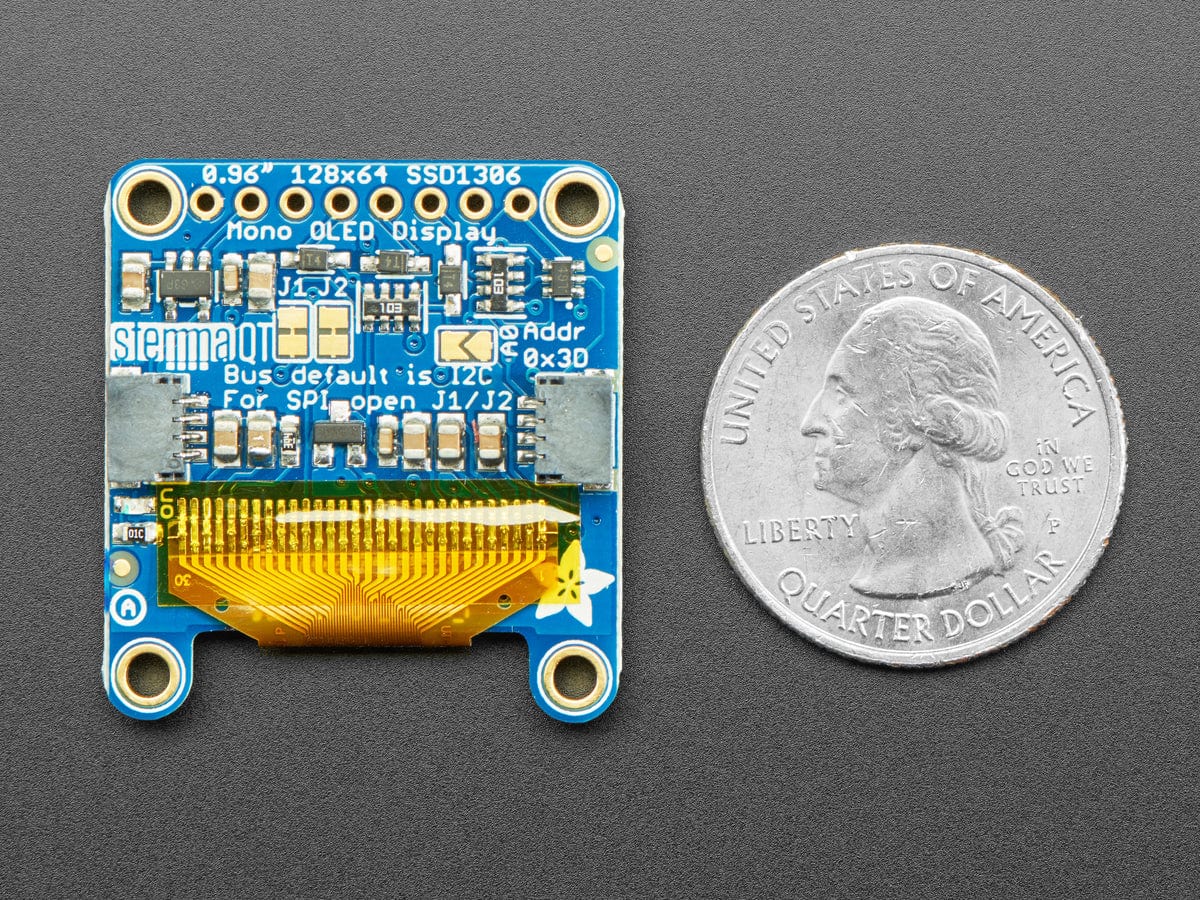
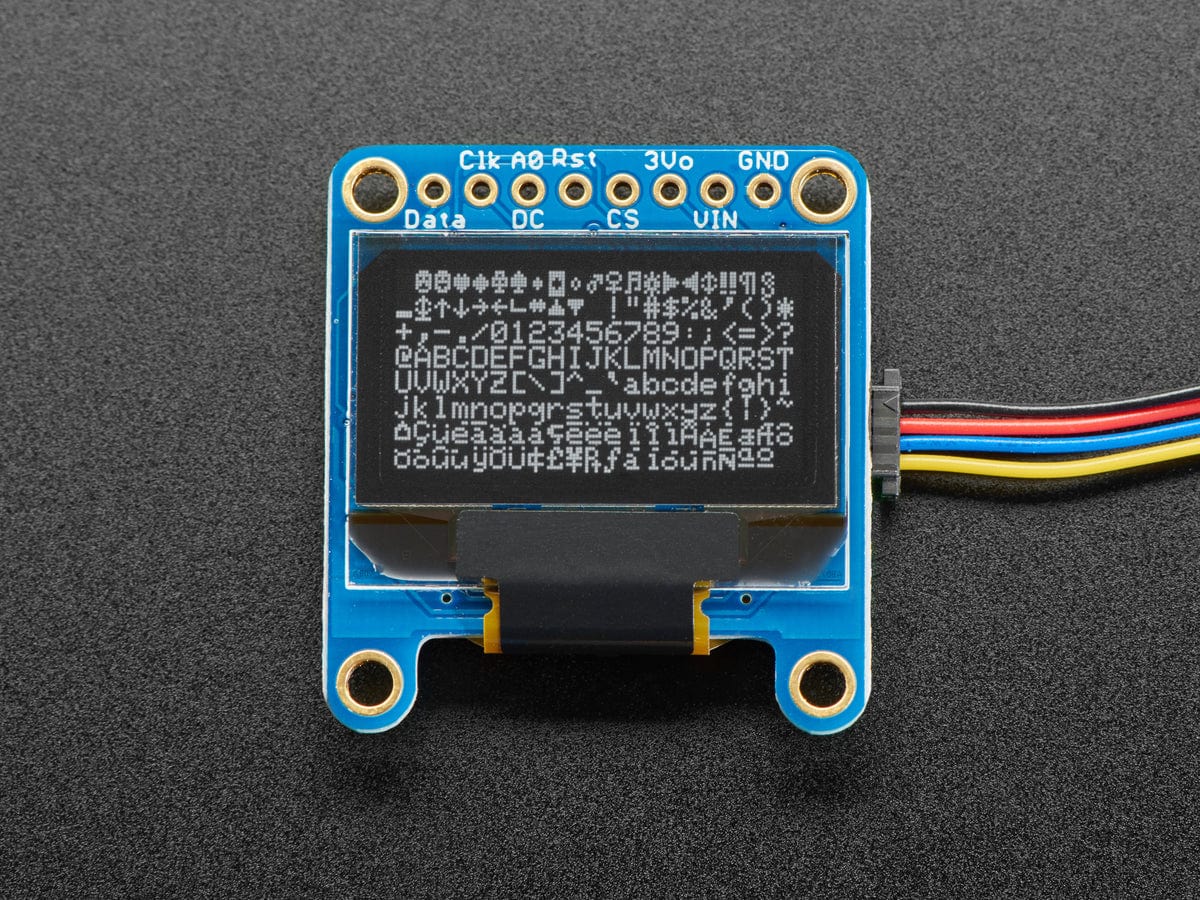
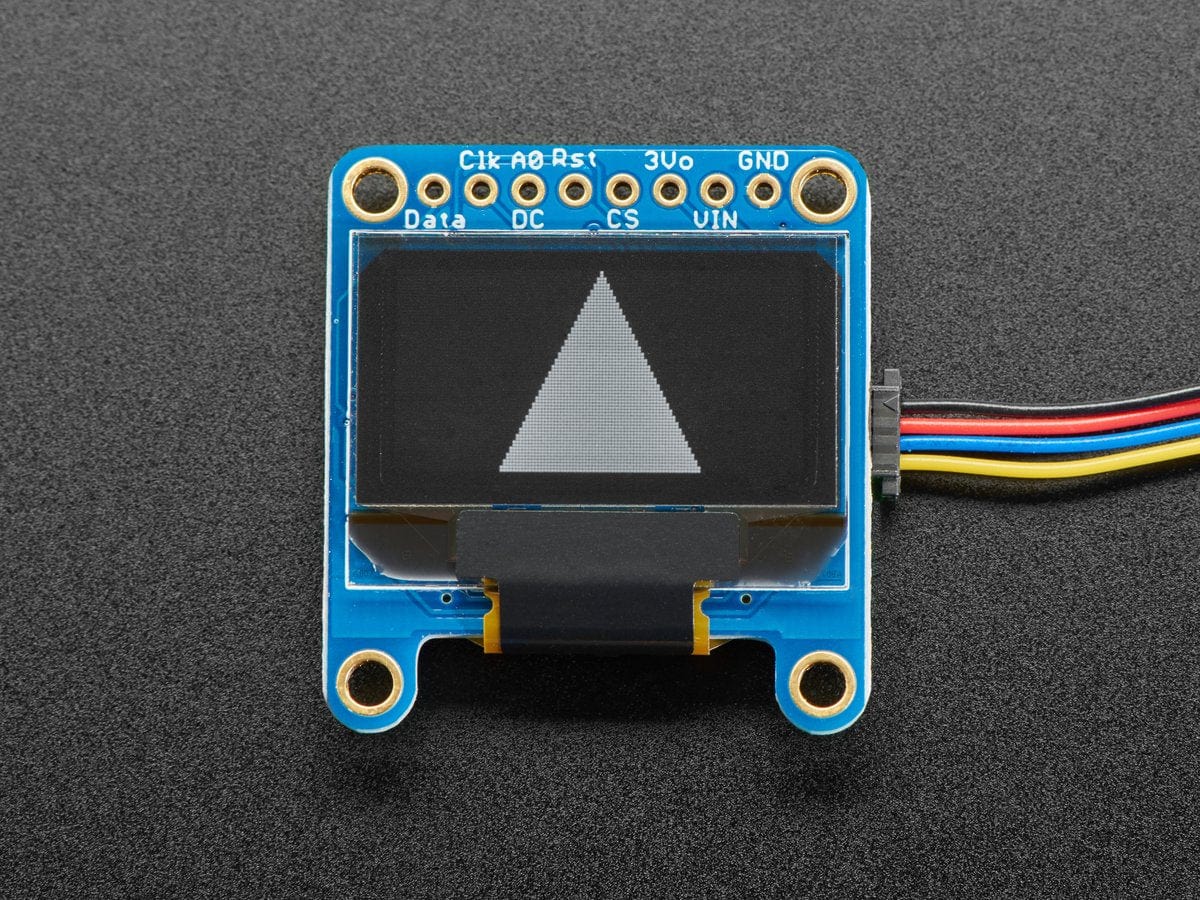
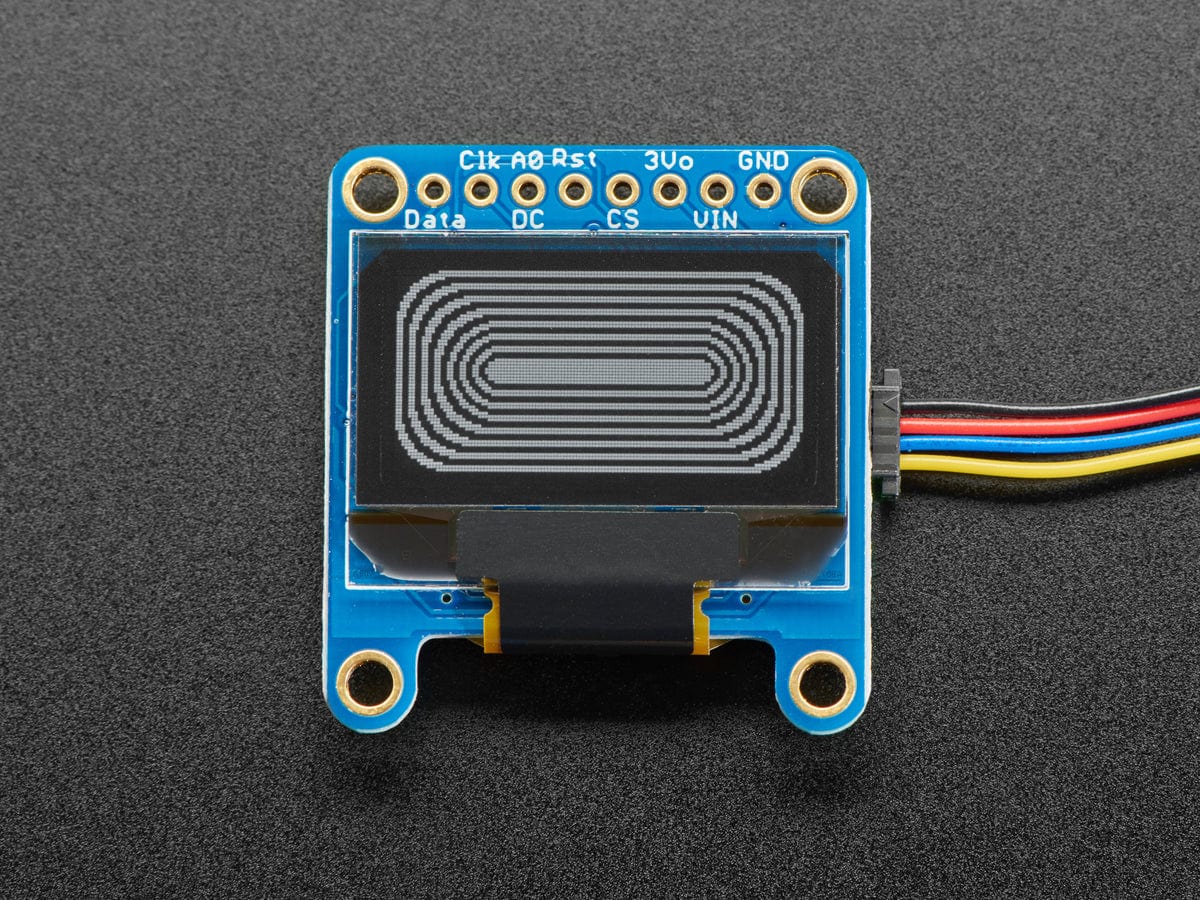
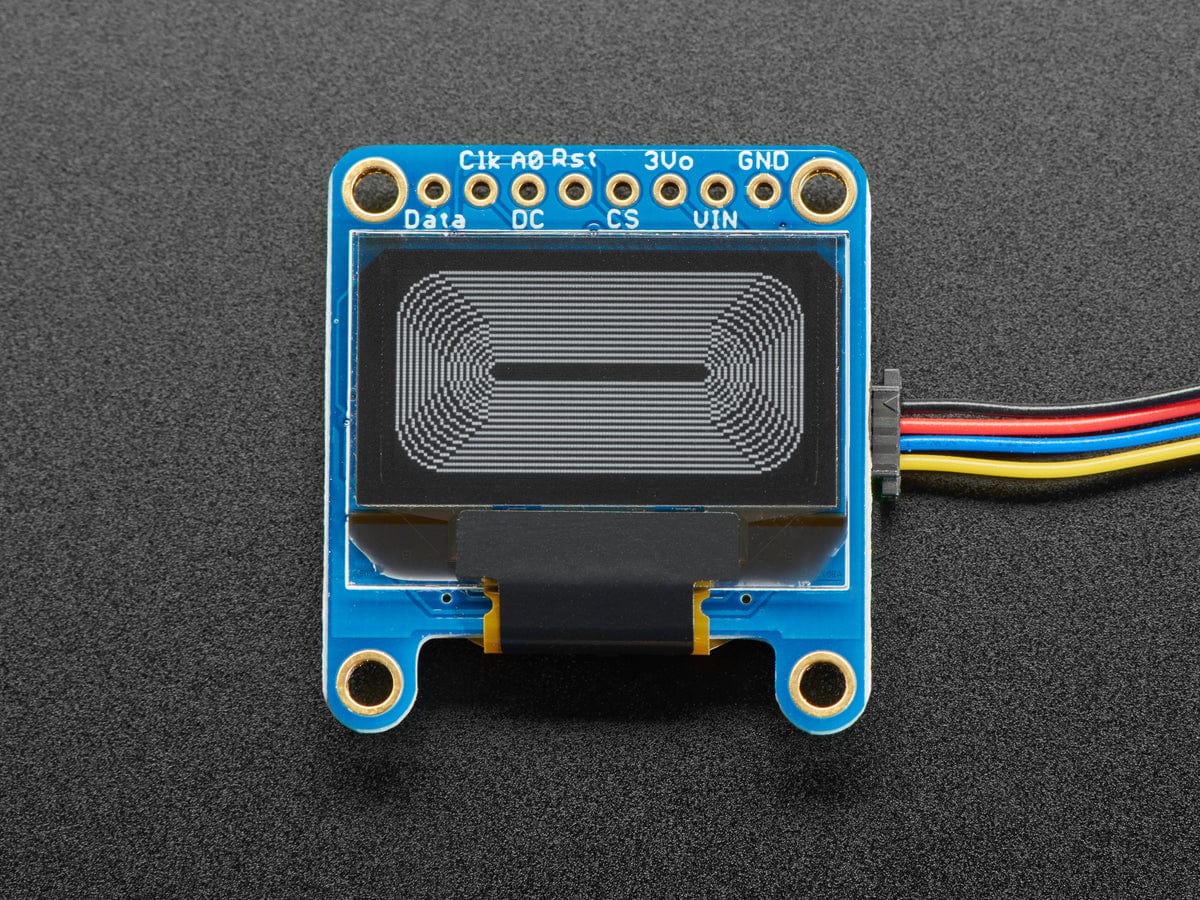
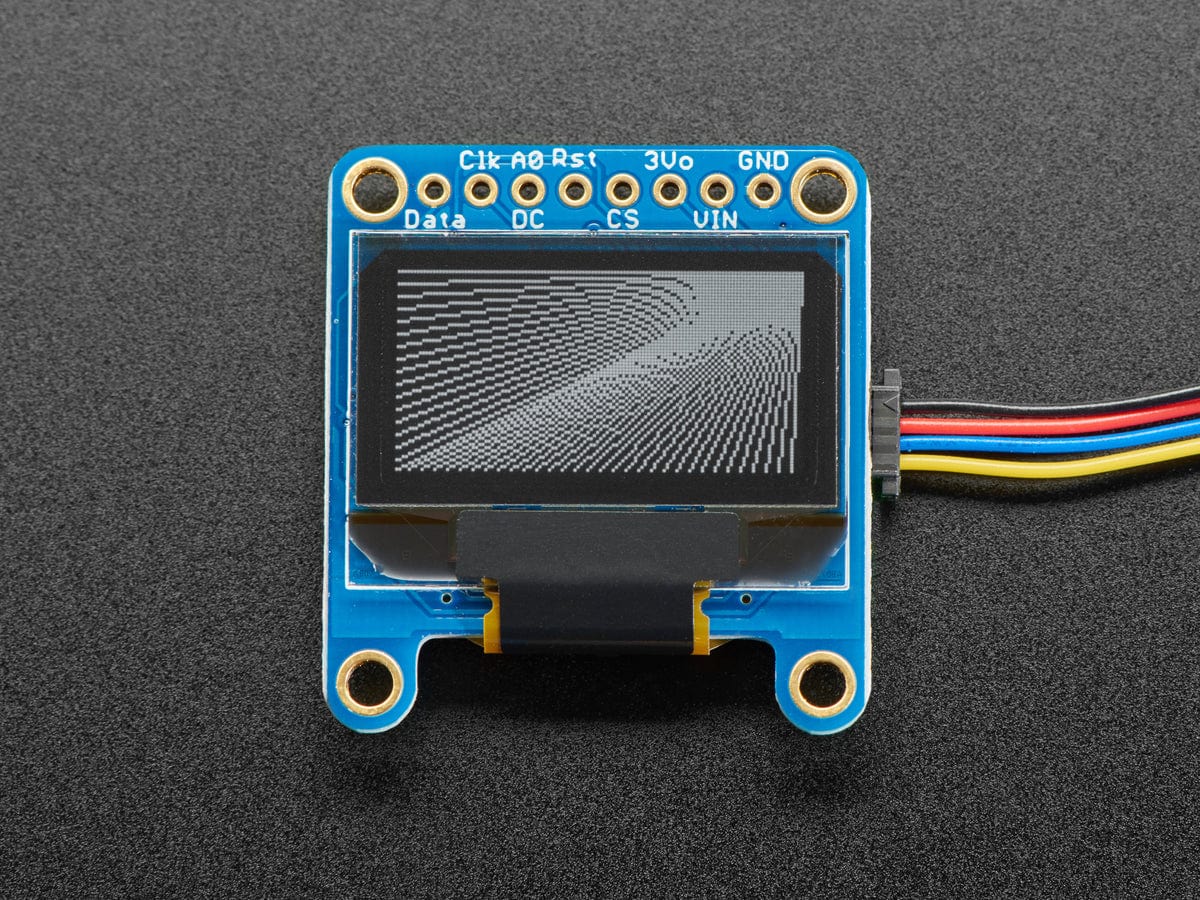
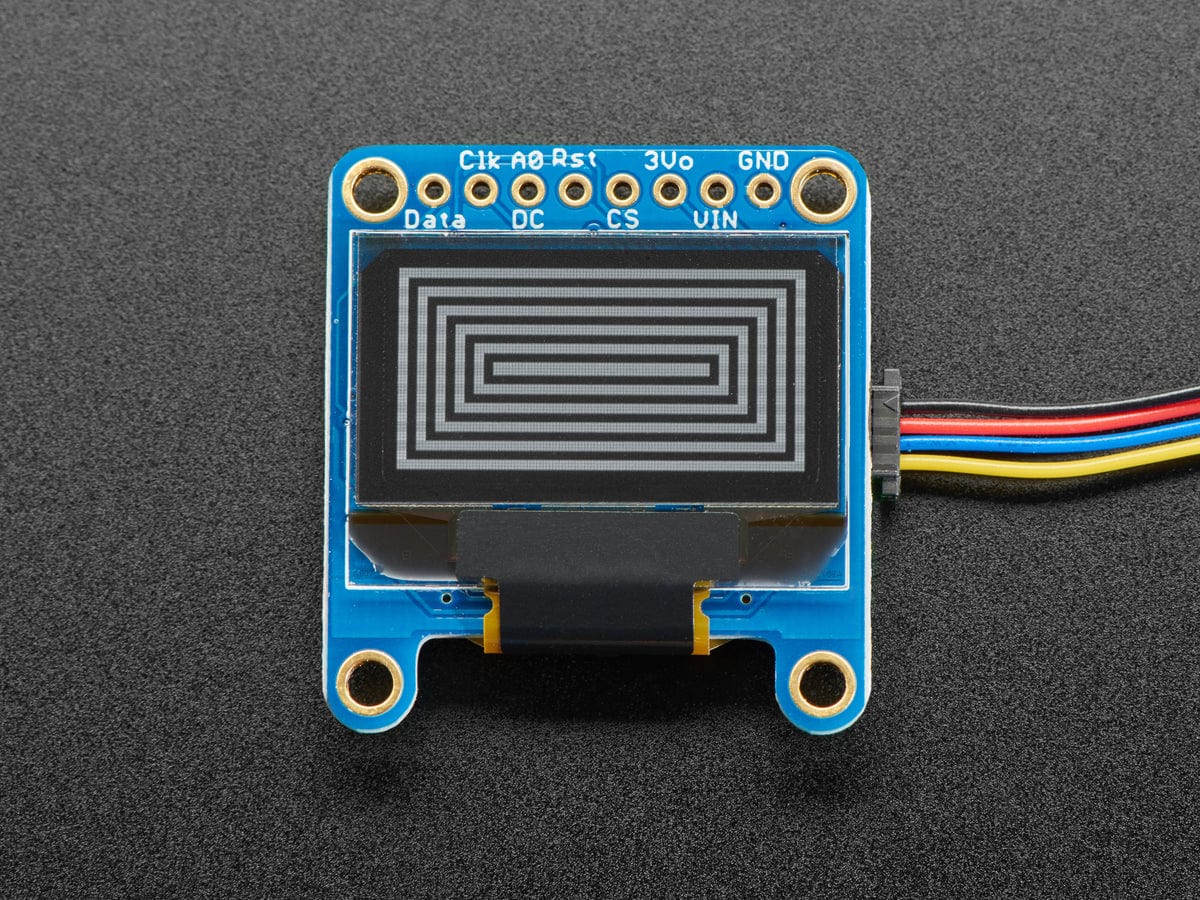
Login / Signup
Cart
Your cart is empty
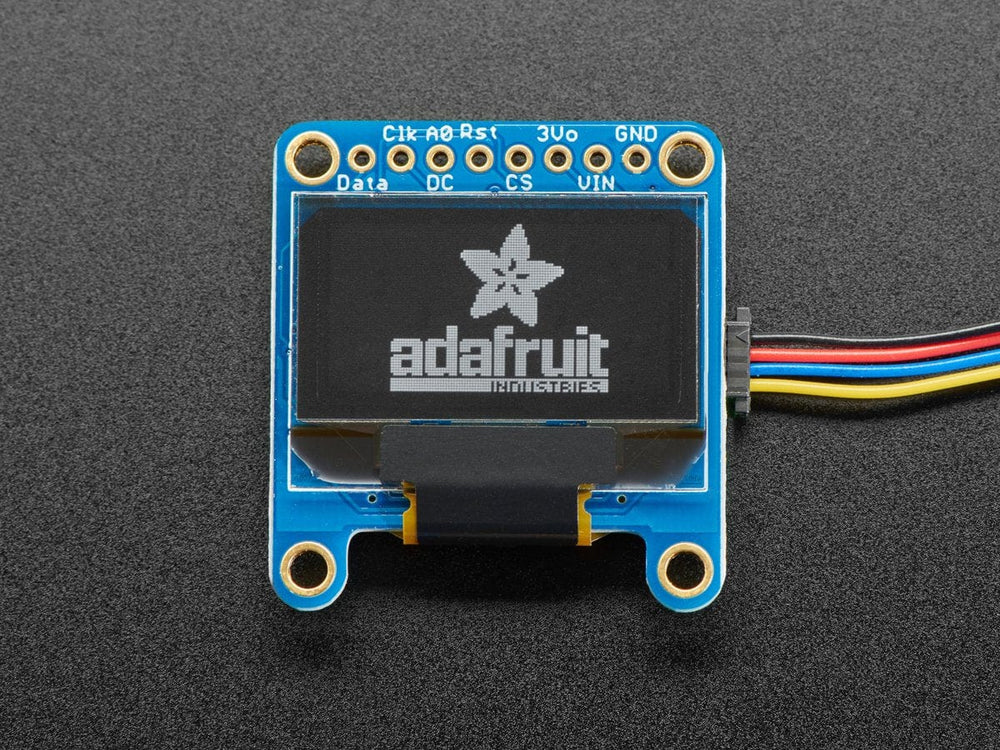
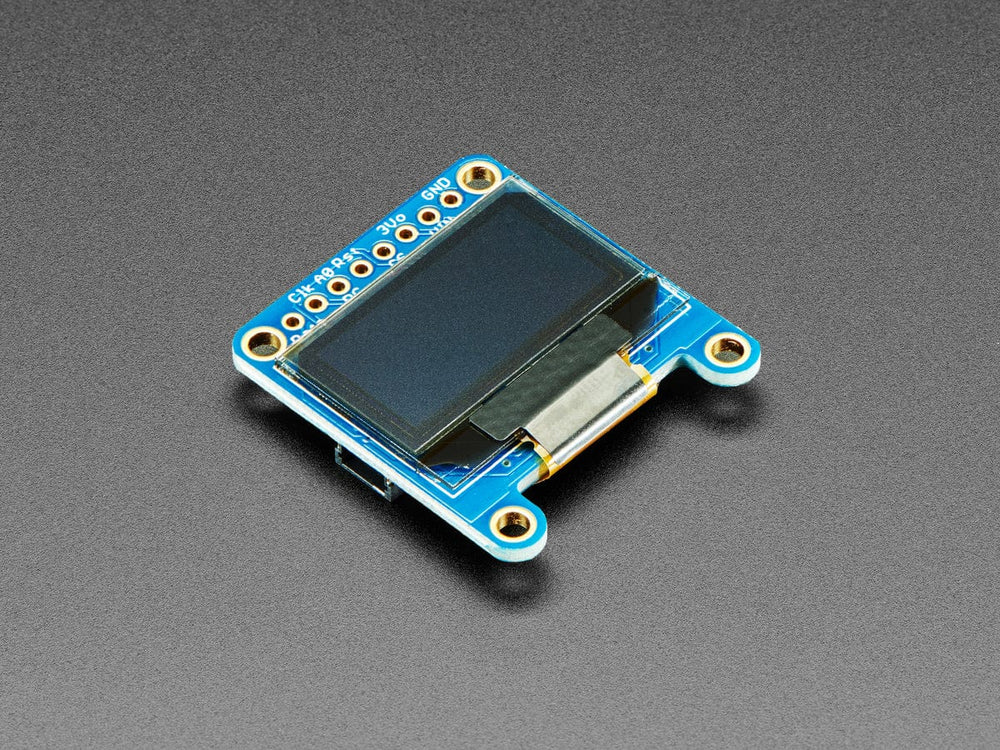
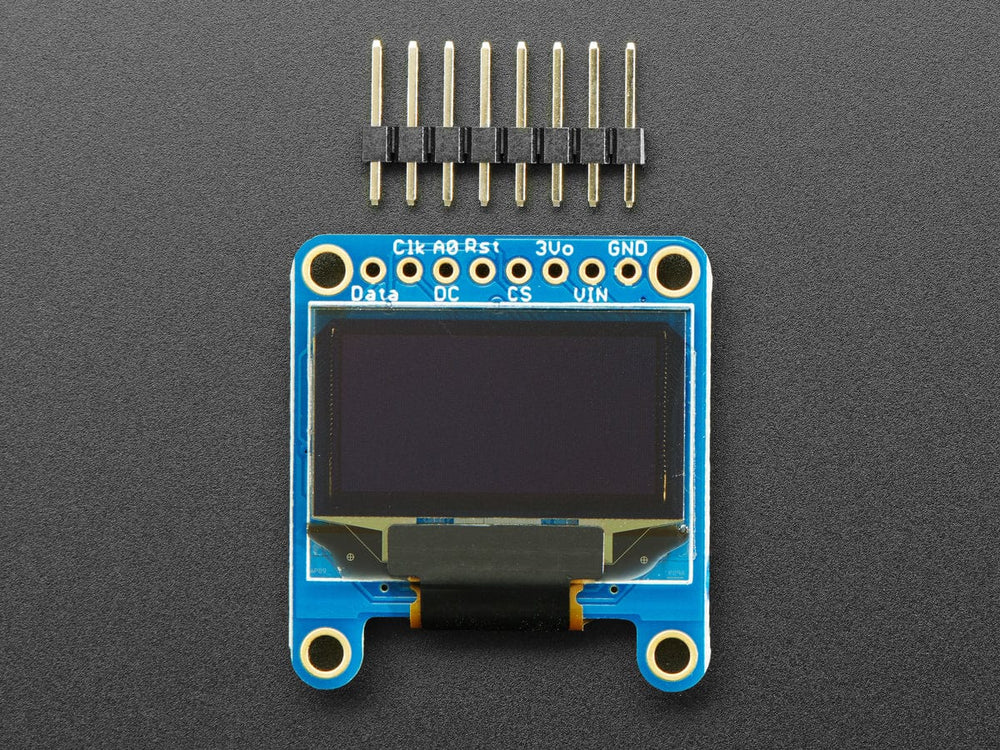
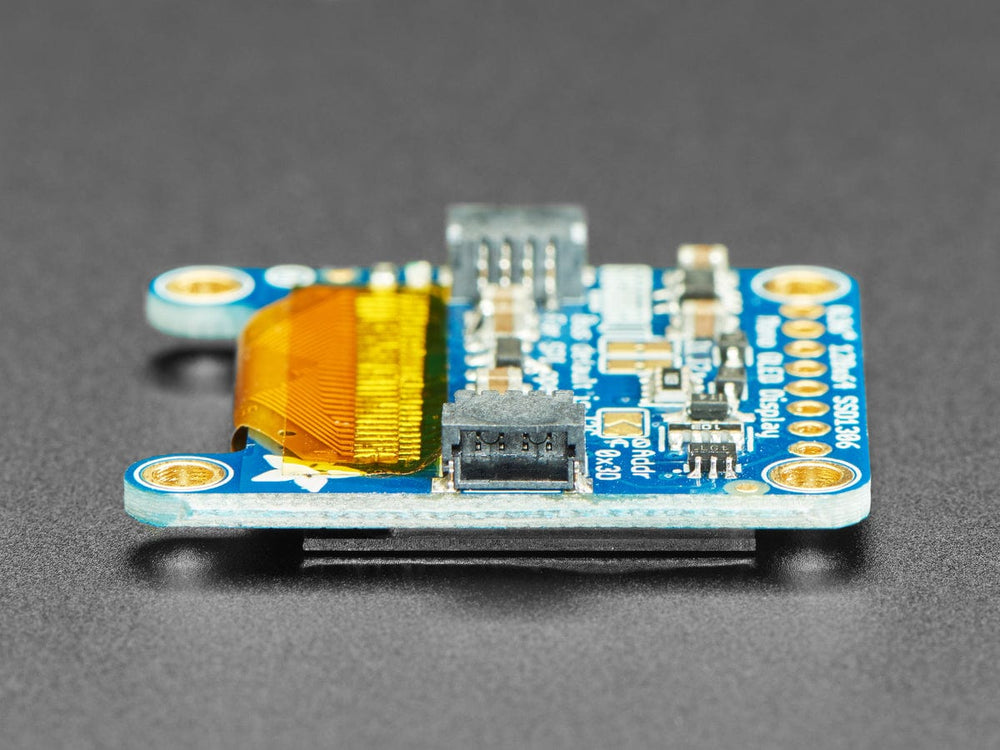
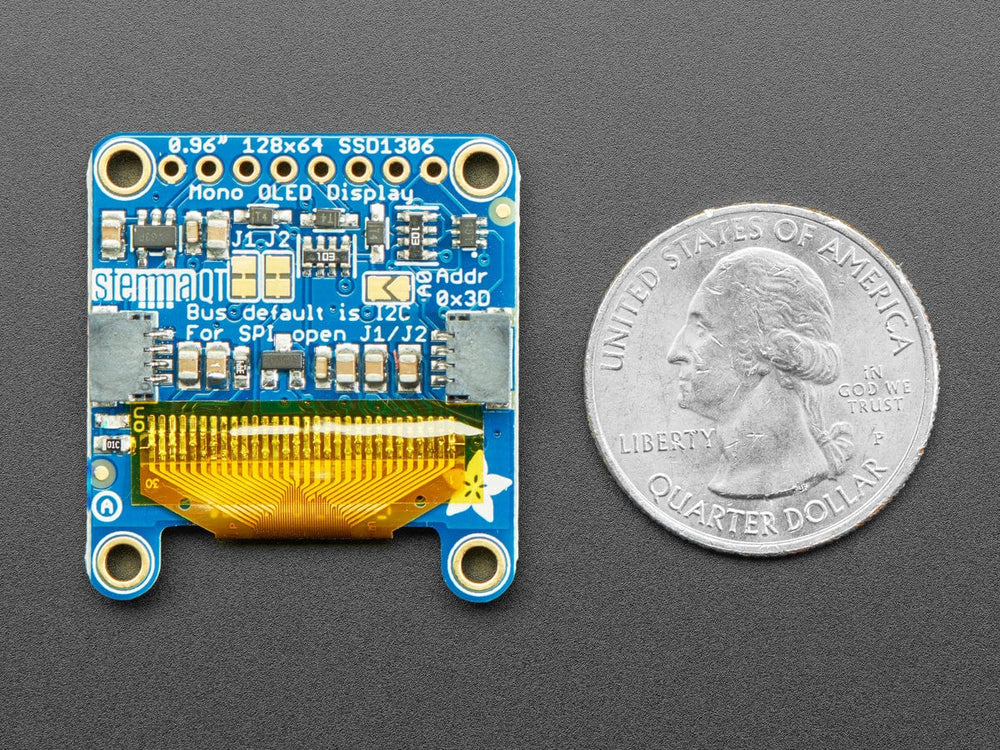
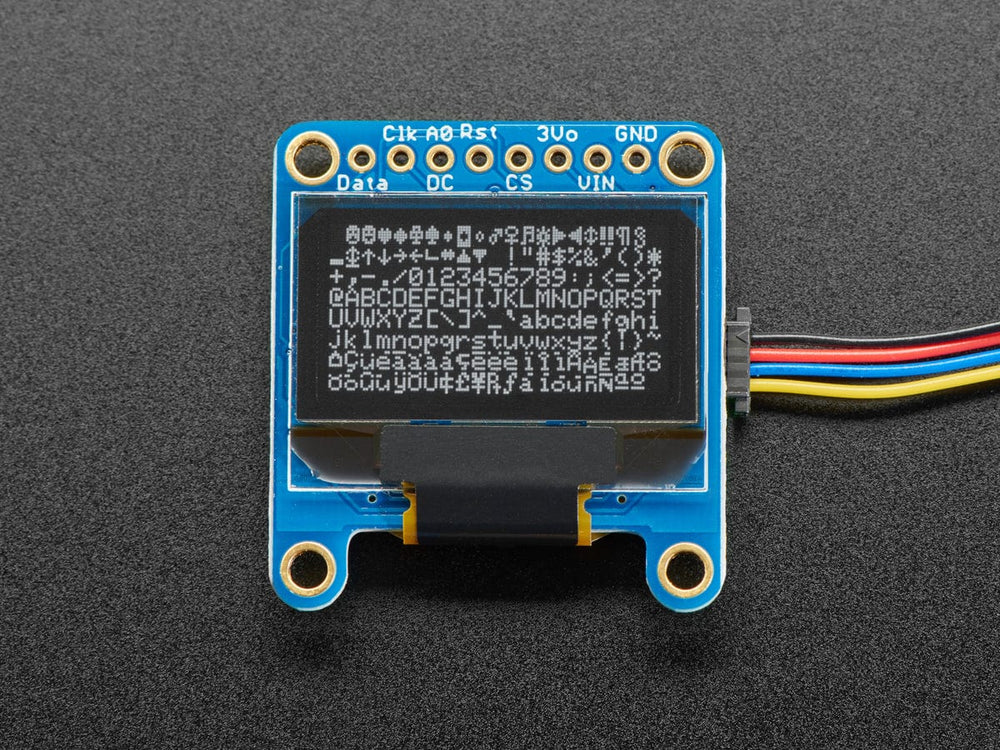
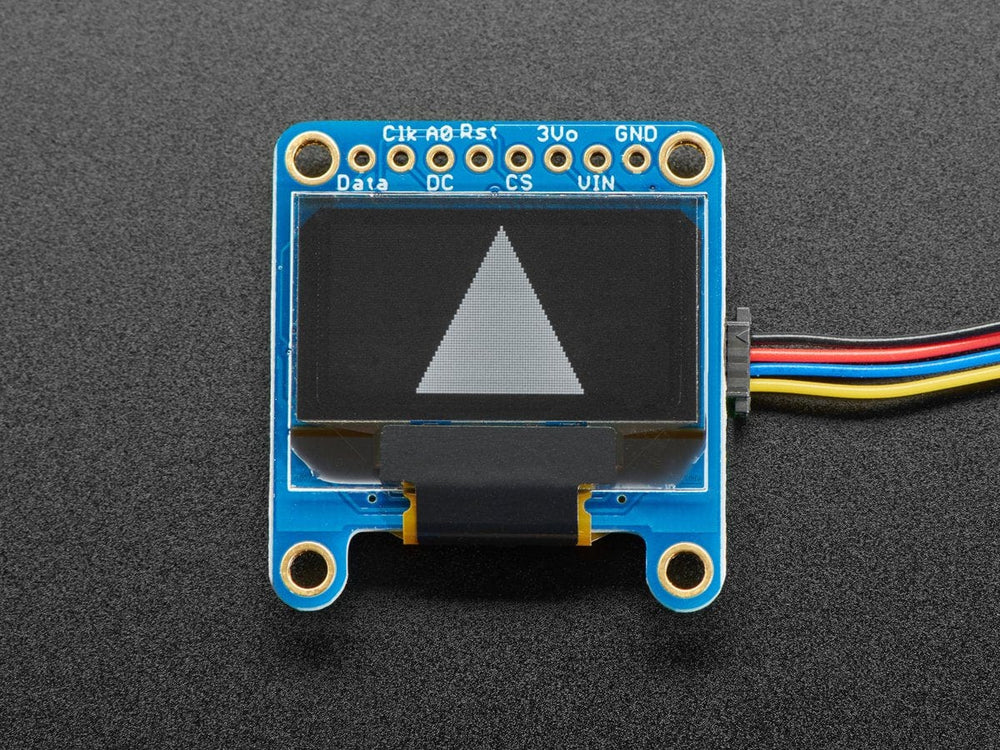
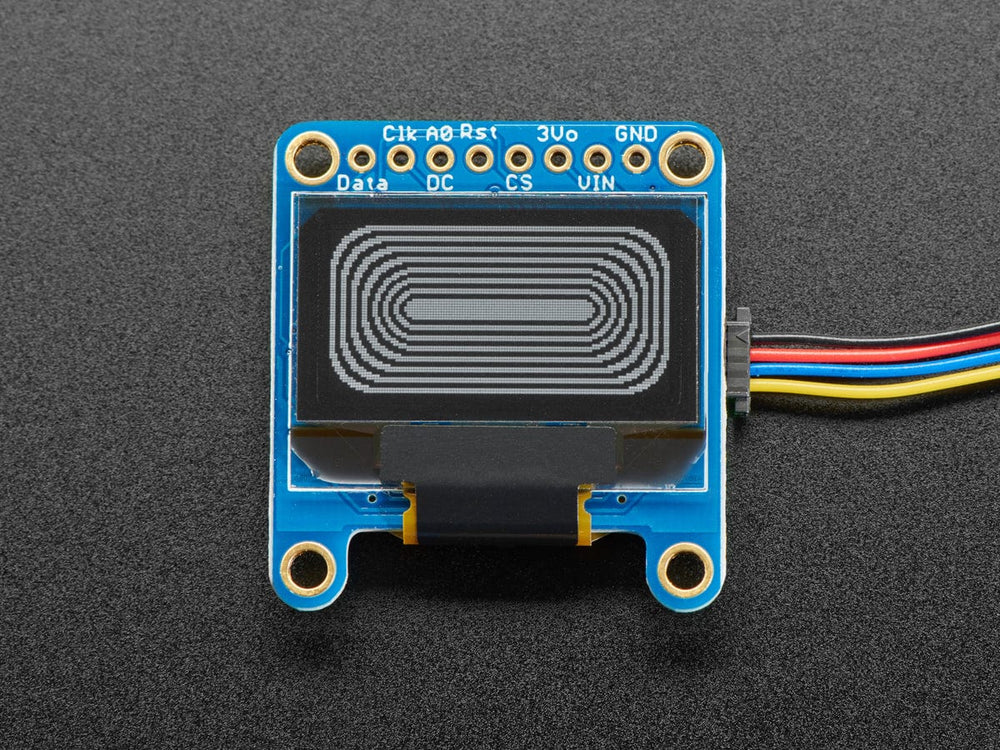
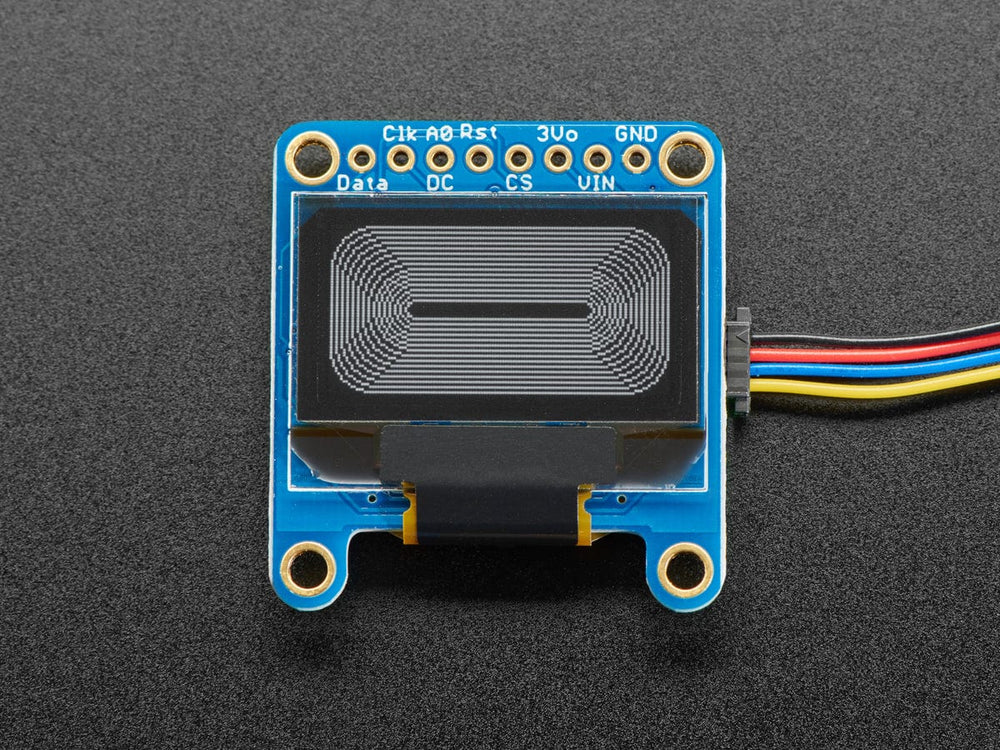
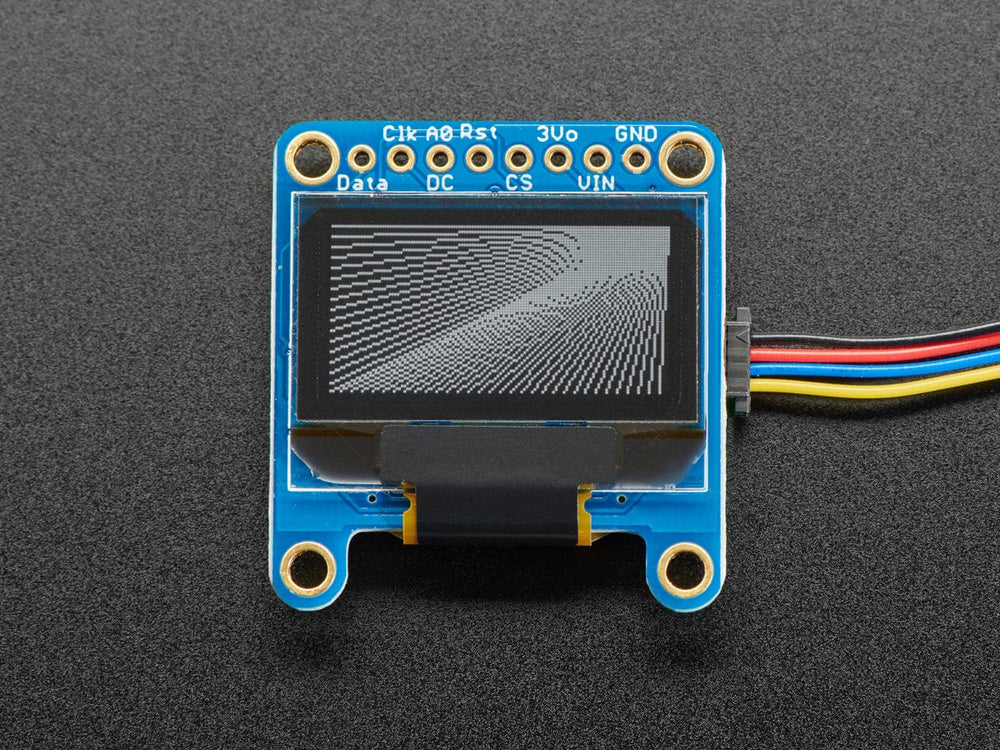
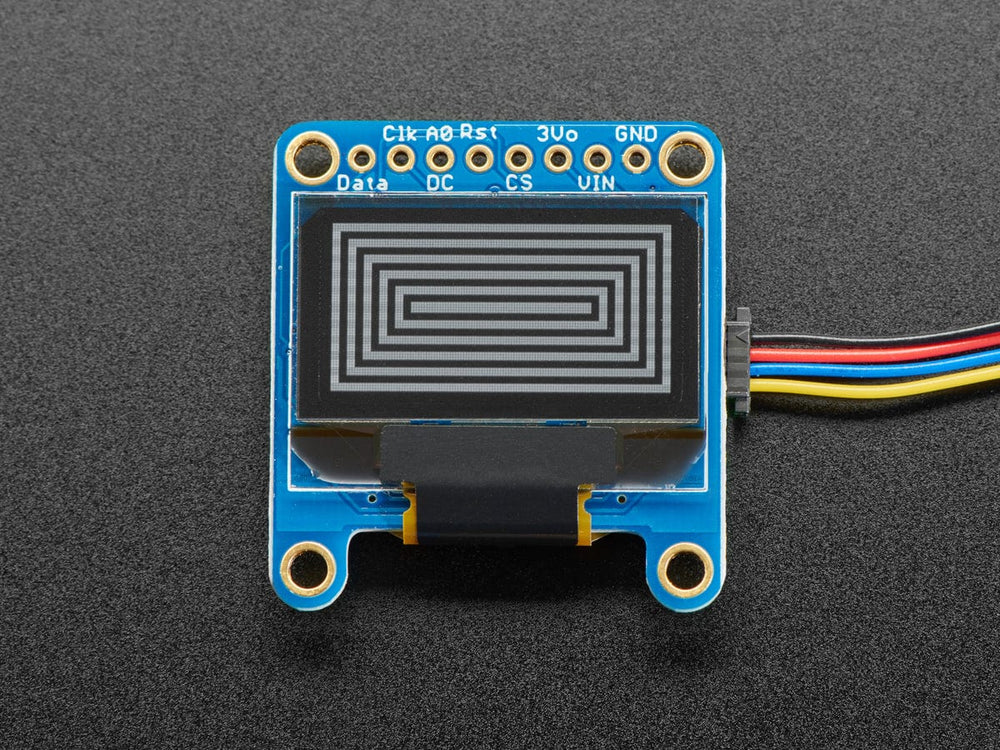
These displays are small, only about 1" diagonal, but very readable due to the high contrast of an OLED display. This display is made of 128x64 individual white OLED pixels, each one is turned on or off by the controller chip. Because the display makes its own light, no backlight is required. This reduces the power required to run the OLED and is why the display has such high contrast; we really like this miniature display for its crispness!
This breakout can be used with either an SPI or I2C interface - selectable by cutting two jumpers on the back. The design is completely 5V-ready, with an onboard regulator and built-in boost converter. It's easier than ever to connect directly to your 3V or 5V microcontroller without needing any kind of level shifter!
We've updated the design to add auto-reset circuitry so that the reset pin is optional, since it speaks I2C you can easily connect it up with just two wires (plus power and ground!). We've even included SparkFun qwiic compatible STEMMA QT connectors for the I2C bus so you don't even need to solder when you purchase and attach a STEMMA QT cable! QT Cable is not included, but we have a variety in the shop
We have a detailed tutorial and example code in the form of an Arduino library for text and graphics. You'll need a microcontroller with more than 1K of RAM since the display must be buffered. The library can print text, bitmaps, pixels, rectangles, circles, and lines. It uses 1K of RAM since it needs to buffer the entire display but it's very fast! The code is simple to adapt to any other microcontroller.
Please note that OLED displays are made of hundreds of...OLEDs! That means each pixel is a little organic LED, and if it's kept on for over 1000 hours it'll start to dim. If you want to keep the display uniformly bright, please turn off the display (set the pixels off) when it isn't needed to keep them from dimming.
EagleCAD PCB files, Fritzing, and datasheets available in the product tutorial
Revision History:
Dimensions:












